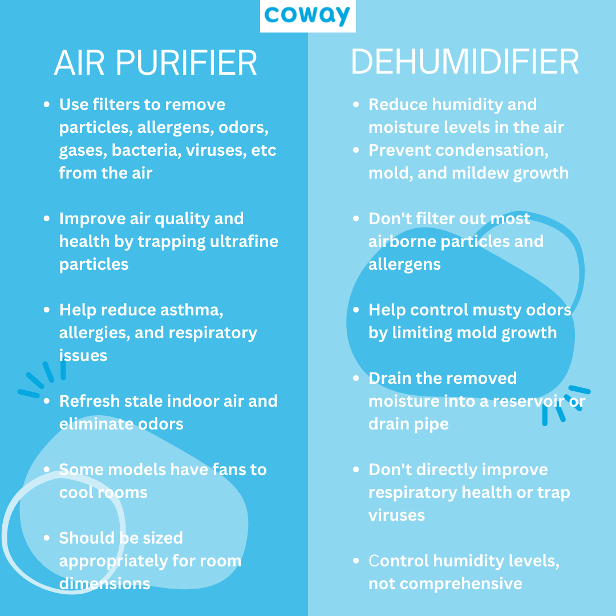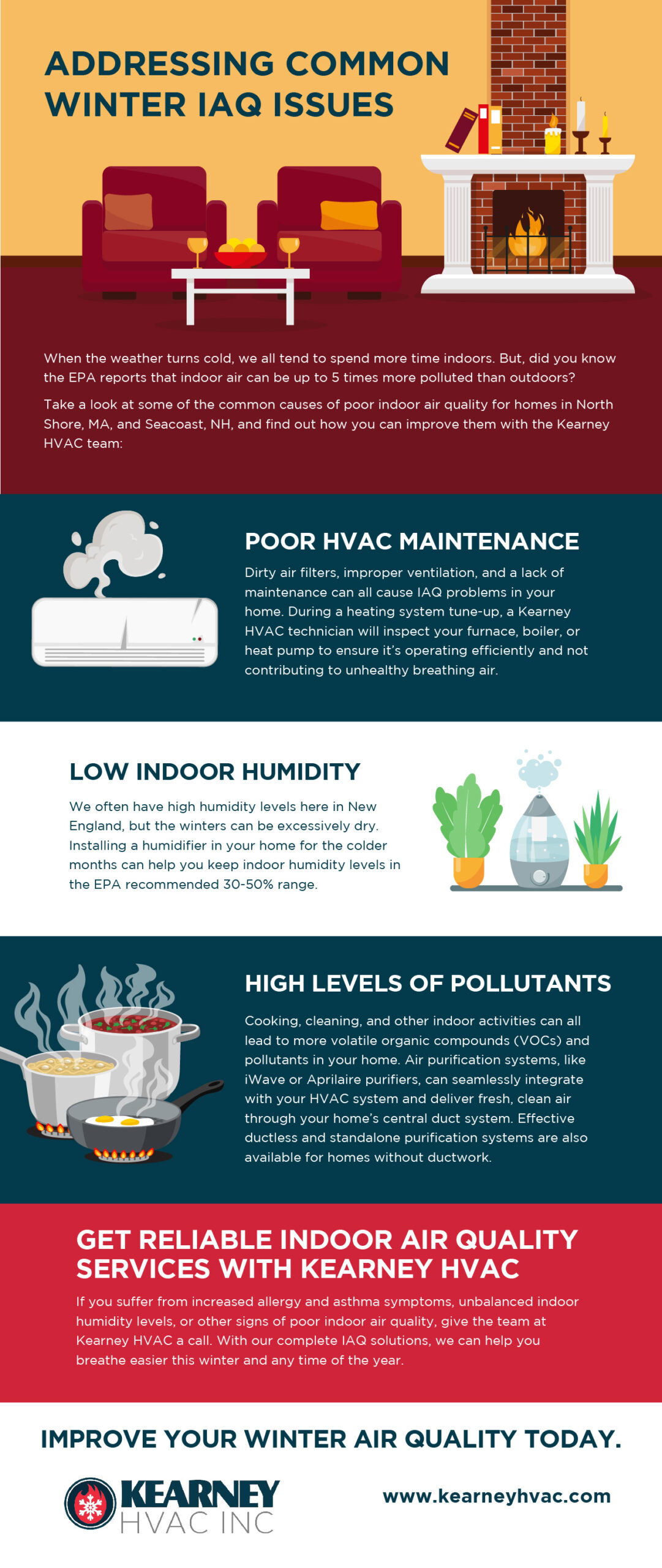Humidity affects asthma symptoms significantly. High or low humidity can trigger asthma attacks.
So, what role does humidity play in asthma, and how can air purifiers help? Asthma is a common respiratory condition affecting millions worldwide. The air we breathe, especially its moisture content, can impact asthma symptoms. High humidity can lead to mold growth and dust mites, both asthma triggers.
On the other hand, low humidity can dry out airways, causing irritation. So, maintaining balanced humidity levels is crucial for asthma management. Air purifiers can play a significant role here. They help reduce pollutants and allergens in the air, making breathing easier. In this blog, we will explore the connection between humidity and asthma and how air purifiers can aid in creating a healthier living environment.

Credit: cowaymega.com
Understanding Humidity And Its Effects
Humidity plays a significant role in the air we breathe. It can have a major impact on our health, especially for asthma sufferers. To understand how, we need to know what humidity is and how it affects our bodies.
What Is Humidity?
Humidity is the amount of moisture in the air. It is measured as a percentage. When the air holds a lot of moisture, the humidity is high. When the air is dry, the humidity is low.
The ideal indoor humidity level ranges between 30% and 50%. Levels outside this range can cause discomfort and health issues.
How Humidity Affects Health
High humidity can make the air feel heavy. It can cause breathing problems, especially for people with asthma. The moisture in the air makes it harder to breathe. It can also lead to the growth of mold and dust mites. These can trigger asthma attacks.
On the other hand, low humidity can dry out your skin and mucous membranes. This can cause irritation and make you more prone to infections.
Maintaining the right humidity level is crucial for good health. An air purifier can help. It can remove allergens and maintain a healthy humidity level.
Asthma And Environmental Factors
Asthma is a chronic condition affecting the airways. Many factors influence asthma. Environmental factors play a key role. These factors include air quality, allergens, and weather conditions. Understanding these can help manage asthma better.
Triggers Of Asthma
Several elements can trigger asthma symptoms. Common triggers include dust mites, pet dander, and pollen. Smoke, strong odors, and pollution also affect asthma. Cold air and sudden weather changes can trigger symptoms too. Identifying triggers is crucial for managing asthma.
Impact Of Humidity On Asthma
Humidity levels have a significant effect on asthma. High humidity can increase mold and dust mites. These are common asthma triggers. Damp air can make breathing harder for asthma patients. Low humidity, on the other hand, can dry out airways. This leads to irritation and asthma flare-ups. Balancing humidity levels is important for asthma control.
Symptoms Of Asthma In Humid Conditions
Humidity can play a significant role in triggering asthma symptoms. Many people with asthma find that humid conditions exacerbate their condition. Understanding the symptoms of asthma in humid conditions can help manage this chronic illness effectively.
Common Symptoms
In humid conditions, the most common symptoms of asthma can become more intense. These symptoms often include:
- Shortness of breath: Breathing can become more difficult due to the moisture in the air.
- Wheezing: A high-pitched whistling sound when breathing, often more noticeable in humid air.
- Coughing: Persistent cough, especially at night or early morning.
- Chest tightness: A feeling of pressure or squeezing in the chest.
Severe Reactions
Sometimes, humid conditions can lead to more severe reactions in asthma patients. These reactions may include:
- Severe shortness of breath: Difficulty in breathing that worsens quickly.
- Rapid breathing: Faster than normal breathing rate, often resulting in a feeling of panic.
- Blue lips or face: Indication of low oxygen levels, requiring immediate medical attention.
- Inability to speak: Struggling to talk more than a few words at a time.
Recognizing these symptoms early can help in taking timely action to manage asthma effectively. Using an air purifier can help reduce these symptoms by removing excess moisture and allergens from the air, making it easier to breathe.
Mechanism Of Humidity On Respiratory System
Humidity plays a crucial role in how our respiratory system functions. For individuals with asthma, understanding this mechanism is essential. Humidity affects the air we breathe, directly impacting our lungs and overall health.
Airway Inflammation
High humidity can lead to airway inflammation. The airways swell and narrow, making breathing difficult. This is particularly challenging for people with asthma. Inflammation can cause wheezing and shortness of breath. Low humidity can also trigger asthma symptoms. Dry air irritates the airways, leading to inflammation.
Mucus Production
Humidity levels influence mucus production in the respiratory system. High humidity increases mucus production, which can clog the airways. This makes breathing harder, especially during an asthma attack. Conversely, low humidity dries out the mucus. This makes it thick and sticky, causing blockages.
Benefits Of Air Purifiers
High humidity can worsen asthma symptoms. Air purifiers help by reducing allergens and controlling indoor humidity levels. This creates a healthier breathing environment.
Air purifiers can greatly improve indoor air quality. They remove harmful particles from the air. This helps people with asthma breathe easier. Clean air reduces asthma symptoms. It also lowers the risk of asthma attacks. Air purifiers can remove allergens. These include dust mites, pollen, and pet dander. They also eliminate pollutants like smoke and fumes. Cleaner air means fewer triggers for asthma.How Air Purifiers Work
Air purifiers use filters to clean the air. They pull in dirty air and trap particles. Then, they release clean air back into the room. Some use HEPA filters. These are very effective at removing small particles. Others use activated carbon filters. These help remove odors and chemicals. Some purifiers use UV light. This kills bacteria and viruses. Each type of purifier has its own method of cleaning the air.Types Of Air Purifiers
There are many types of air purifiers. Each has its own features. HEPA purifiers are popular. They capture 99.97% of particles. This includes dust, pollen, and mold spores. Activated carbon purifiers are also common. They remove gases and odors. These are good for homes with smokers. UV purifiers kill germs. They use ultraviolet light to destroy bacteria and viruses. Ionic purifiers work differently. They release charged ions. These attach to particles and make them heavy. The particles then fall to the ground. This helps clean the air. Choosing the right purifier depends on your needs. “`Air Purifiers For Asthma Patients
Humidity levels can impact asthma symptoms. Air purifiers help by removing allergens and maintaining optimal indoor air quality. This can make breathing easier for asthma patients.
Air purifiers can be a great help for asthma patients. They work by removing harmful particles from the air. This creates a cleaner and safer environment to breathe in. For those with asthma, this can lead to fewer attacks and better overall health.Reducing Pollutants
Pollutants like dust, pollen, and smoke can trigger asthma attacks. Air purifiers reduce these pollutants in your home. They capture tiny particles that are hard to see but can cause big problems. This helps in making the air you breathe cleaner and safer.Maintaining Optimal Humidity
Humidity levels can affect asthma symptoms. Too much moisture can lead to mold growth, which is bad for asthma. Too little humidity can dry out airways, making it hard to breathe. Some air purifiers help maintain the right humidity level. This creates a balanced environment that is easier on asthma patients. “`Choosing The Right Air Purifier
Asthma sufferers know how crucial it is to breathe clean air. Humidity can affect asthma, making it hard to breathe. The right air purifier can help. But how do you choose the best one?
Key Features To Look For
When choosing an air purifier, look for these key features:
- HEPA Filter: Captures small particles, including dust and pollen.
- Activated Carbon Filter: Removes odors and harmful gases.
- CADR (Clean Air Delivery Rate): Measures the purifier’s efficiency.
- Noise Level: Ensure the purifier operates quietly, especially at night.
- Room Size: Choose a purifier that matches the room size.
- Energy Efficiency: Save on electricity bills with an energy-efficient model.
Top Recommended Models
Here are some top recommended air purifiers:
| Model | Features | Price |
|---|---|---|
| Dyson Pure Cool | HEPA filter, Carbon filter, Smart sensors | $499 |
| Honeywell HPA300 | HEPA filter, High CADR, Covers large rooms | $249 |
| Levoit LV-H132 | Compact, Quiet, Budget-friendly | $89 |
Each of these models has unique features. Choose the one that fits your needs and budget.

Credit: www.sensitivechoice.com
Additional Tips For Managing Asthma
Managing asthma can be challenging, but there are additional tips to help you breathe easier. Incorporating simple changes and paying attention to your surroundings can make a big difference in your asthma management. Below are some practical tips that can aid in reducing asthma symptoms.
Lifestyle Adjustments
Make your home a safe haven. Keep your living space clean. Dust and allergens can trigger asthma. Use hypoallergenic bedding. Wash sheets regularly in hot water to kill dust mites.
Stay away from cigarette smoke. It can worsen asthma symptoms. Avoid smoking areas and ask visitors not to smoke in your home.
Exercise regularly. Physical activity strengthens your lungs. Choose activities like swimming, which is easier on the airways. Always warm up before exercising.
Regular Monitoring
Monitor your asthma symptoms daily. Keep a journal. Note any changes or triggers. This helps you understand what affects your asthma.
Use a peak flow meter. This device measures how well air moves out of your lungs. It helps you detect early signs of an asthma attack.
Visit your doctor regularly. Regular check-ups help manage your asthma better. Discuss any changes in your symptoms or medication.

Credit: www.kearneyhvac.com
Frequently Asked Questions
How Does Humidity Affect Asthma?
High humidity can worsen asthma by increasing allergens like mold and dust mites. Dry air can also trigger asthma symptoms.
Can Air Purifiers Help With Asthma?
Yes, air purifiers remove allergens and pollutants from the air. This helps reduce asthma triggers and improve breathing.
What Type Of Air Purifier Is Best For Asthma?
HEPA air purifiers are best for asthma. They effectively remove small particles like dust, pollen, and pet dander.
Does Low Humidity Trigger Asthma?
Yes, low humidity can dry out airways and worsen asthma symptoms. It can also increase respiratory infections.
Conclusion
Humidity impacts asthma significantly. High or low levels can trigger symptoms. Air purifiers help by removing allergens and pollutants. Cleaner air eases breathing. They provide relief and improve indoor air quality. Choosing the right air purifier is vital. Always consider room size and filter type.
Consistent use can make a difference. Breathe easier with the right measures. Stay mindful of indoor humidity levels. Protect your health and well-being.
Rakib Sarwar is a Registered Pharmacist and a reputed health and wellness blogger. He has a great interest in Air purifiers.
